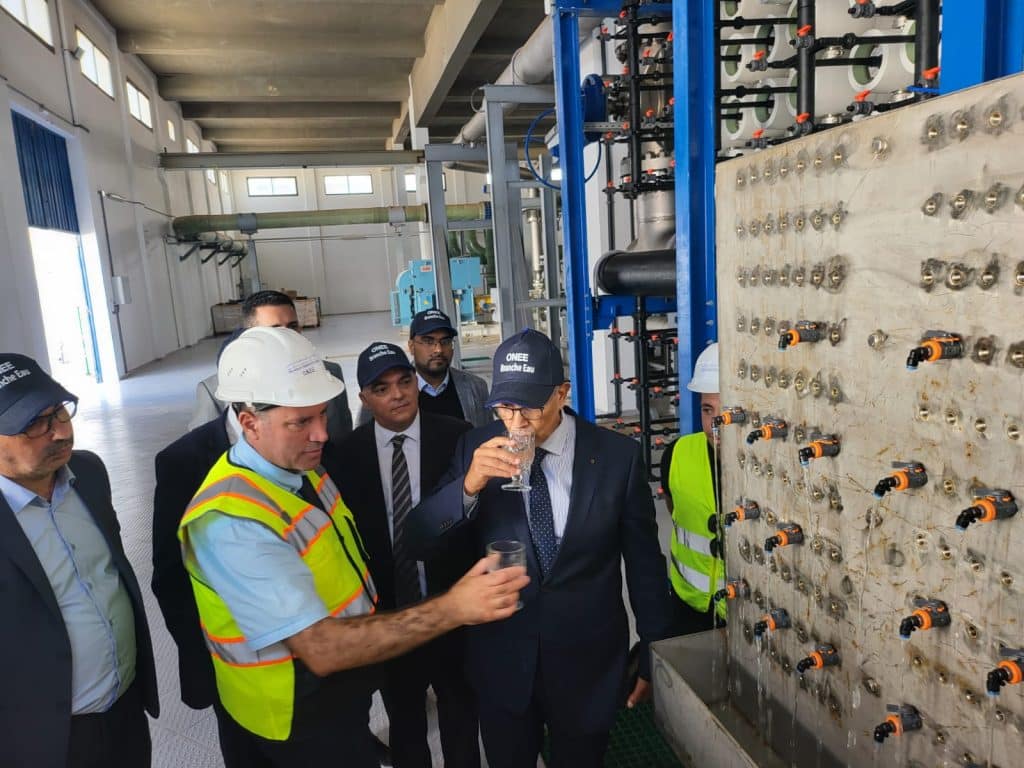The seawater desalination plant of Laâyoune is operational since October 13, 2022. The station commissioned by the Director General of the National Office of Electricity and Drinking Water (Onee), Abderrahim El Hafidi has a capacity of 26,000 m3 per day. According to the Moroccan official, the facility will strengthen the supply of drinking water to the populations of Laayoune, El Marsa, Foum El Oued and Tarouma in Western Sahara.
The new plant is supplied by coastal boreholes in Laayoune. The plant is also connected to three storage tanks with a total capacity of 5,500 m3 as well as pumping stations to facilitate the distribution of water to households in Laayoune.
The fourth desalination plant of the Onee
The seawater desalination plant in Laâyoune is coming on stream more than a year after the deadline set by Onee in June 2021. Through this new desalination plant, the installed production capacity of drinking water at the level of the city of Laâyoune is close to 66,700 m3 per day, including 52,000 m3 per day by desalination of sea water and more than 14,700 m3 per day from underground resources. The project required an overall investment of 450 million Moroccan dirhams (about 42 million euros).
Read also- AFRICA: desalination now at the heart of water supply strategies
With the Laâyoune desalination plant, Onee has a total of four plants in operation in Morocco. The other three plants were commissioned in the cities of Al Hoceima in May 2020, Tarfaya in February 2021 and Agadir in January 2022. These stations were built under a public-private partnership (PPP) shared with the Moroccan Ministry of Agriculture, Maritime Fishing, Rural Development and Water and Forests.
To date, Onee’s daily production of drinking water from desalination is 232,000 m3. Morocco also relies on the reuse of treated wastewater as an alternative to water stress.
Ines Magoum
